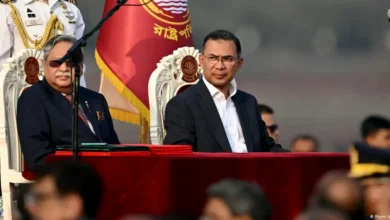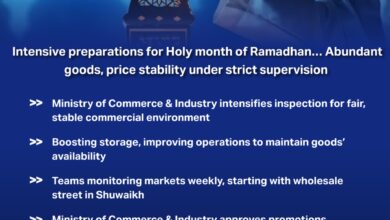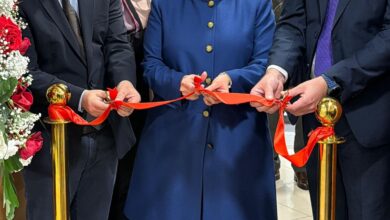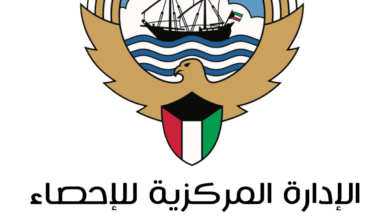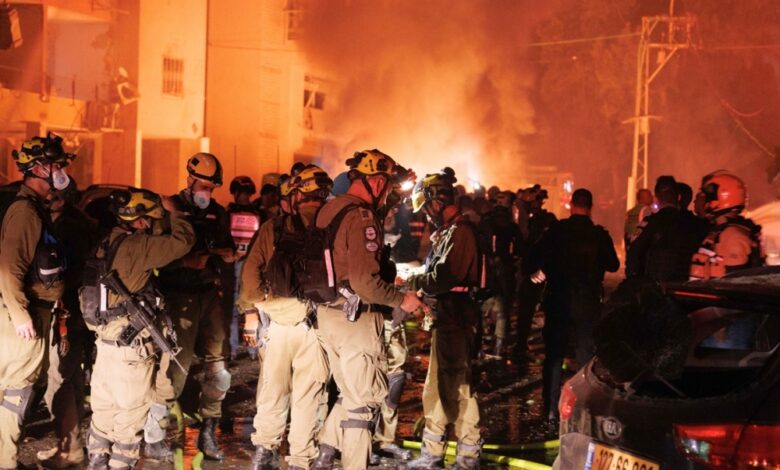
As the military confrontation between Israel and Iran intensifies, the Gulf Cooperation Council (GCC) has taken proactive measures to mitigate the regional fallout from the conflict, particularly the threat of a potential nuclear disaster.
During an extraordinary virtual meeting chaired by Kuwaiti Foreign Minister Abdullah Al-Yahya, GCC foreign ministers discussed the implications of recent Israeli strikes on Iranian territory and Tehran’s retaliatory attacks. The meeting culminated in the activation of the GCC Emergency Management Center to monitor and respond to possible environmental and radiological risks, reports Al-Jarida daily.
GCC Secretary-General Jassim Al-Budaiwi stated that the ministers expressed grave concern over the escalating hostilities, which have introduced dangerous and unpredictable dynamics into the region. Stressing the urgency of de-escalation, the Council reiterated its call for restraint and condemned any military actions that could push the region into a wider, uncontrollable conflict.
A key concern raised during the meeting was the potential targeting of Iranian nuclear facilities, which could have catastrophic consequences for environmental safety, public health, and critical infrastructure across the Gulf.
In response, the Emergency Management Center has been tasked with implementing precautionary measures, coordinating with member states’ authorities, activating early warning systems, and issuing technical bulletins. So far, monitoring data indicates no radiation threats, but a state of full alert remains in place.
In its six-point final communiqué, the Ministerial Council condemned the Israeli attacks and called for an immediate ceasefire. The Council emphasized the necessity of returning to diplomatic negotiations, particularly U.S.-Iran nuclear talks facilitated by Oman, and urged the international community—especially the United Nations Security Council—to assume responsibility in halting the conflict.
The Council also warned of the dire humanitarian and environmental consequences should nuclear facilities be attacked, underscoring the role of the International Atomic Energy Agency (IAEA) in safeguarding regional stability. It highlighted the importance of preserving maritime security, protecting energy infrastructure, and maintaining the uninterrupted flow of trade through vital waterways.
The war has now entered a more dangerous phase, with Israeli forces reportedly bombing Iranian state institutions, including state media headquarters in Tehran. This escalation came after Iran launched its most intense missile barrage yet, causing significant damage in Israeli cities such as Tel Aviv and Haifa. Iranian forces used hypersonic missiles in the attacks.
Israeli Prime Minister Benjamin Netanyahu declared that Israel had neutralized two-thirds of Iran’s missile capabilities and outlined two strategic objectives: dismantling Iran’s nuclear program and eliminating its missile threat. He also issued a chilling threat, stating that the assassination of Iranian Supreme Leader Ali Khamenei “would end the escalation.”
On Friday, 11 Israelis were killed in missile strikes, including an unprecedented attack on the Nevatim Air Base and residences of Israeli officials. Iran’s Islamic Revolutionary Guard Corps (IRGC) Commander Mohammad Pakpour warned that Tehran is prepared for a prolonged and comprehensive conflict, while President Masoud Pezeshkian warned Oman’s Sultan Haitham bin Tariq that Iran might escalate further if the U.S. fails to restrain Israel.
As tensions rise, Iran issued a stark warning to Israeli civilians in Tel Aviv to evacuate, mirroring Israel’s previous calls for evacuations in Gaza, southern Lebanon, and Beirut’s southern suburbs. Meanwhile, the Israeli military reportedly advised residents in central Tehran to leave the area, signaling a potential new escalation.
Diplomatic efforts to end the conflict face significant obstacles. European powers rejected Russia’s offer to mediate, citing Moscow’s close alignment with Tehran. French President Emmanuel Macron dismissed Russia as an impartial mediator, while Turkish President Recep Tayyip Erdoğan expressed willingness to facilitate talks between Iran, Israel, and the U.S.
U.S. President Donald Trump offered mixed messages, claiming Israel is “doing very well” and receiving “a lot of support,” while evading questions about potential American military intervention.
Bloomberg reported severe jamming of navigation systems in the Strait of Hormuz and the Persian Gulf over the weekend, affecting more than 900 ships and highlighting the potential economic disruption from escalating hostilities.
Meanwhile, some Arab countries have begun contingency planning. Egypt has formed a crisis committee to monitor the conflict’s impact, and Iraq issued a warning against violations of its airspace, cautioning that any expansion of the conflict could trigger a global energy crisis.
The GCC concluded its emergency meeting by reaffirming its commitment to regional stability, calling for respect of state sovereignty, and urging all parties to resolve disputes through peaceful means. The Council warned that ongoing conflict threatens not only the Gulf but global security, energy supplies, and trade flows.
As the war between Israel and Iran enters its fourth day, the risk of a broader conflagration looms large, with diplomacy stalled and military escalation showing no signs of slowing.
The GCC’s call for restraint and renewed negotiations may represent one of the last remaining appeals for de-escalation in an increasingly volatile region.







